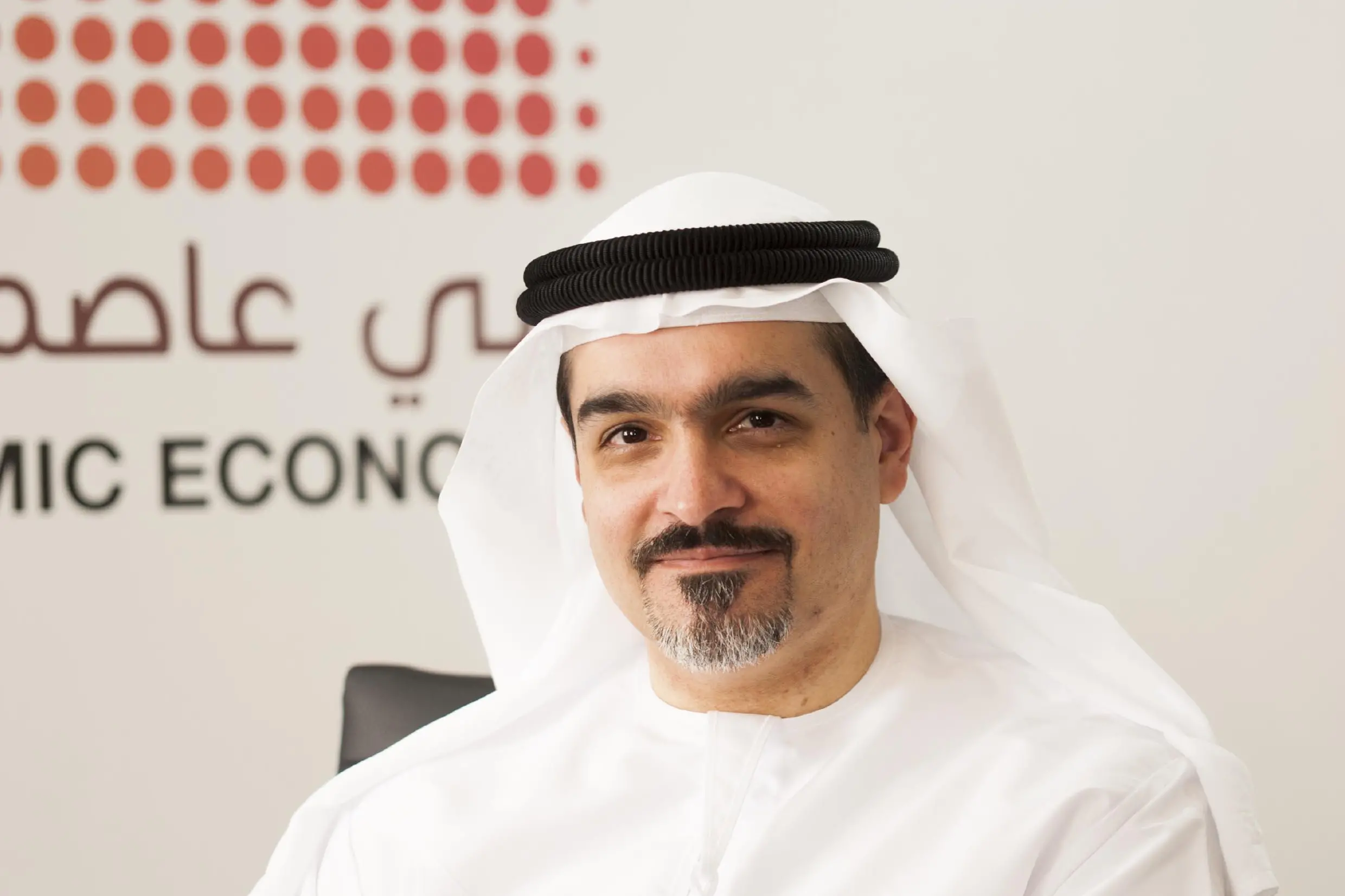PHOTO
As countries begin undertaking economic recovery programs, the GCC region is likely to see an increase in issuances of sukuk, or Islamic bonds, according to Abdulla Mohammed Al Awar, Chief Executive Officer at Dubai Islamic Economy Development Centre (DIEDC).
In a broad-ranging interview with Zawya, Al Awar said the flow of issuances has already begun. “In just the first month of 2021 we’ve seen big lenders like the National Commercial Bank in Saudi Arabia sell $1.25 billion at 3.5 percent and First Abu Dhabi Bank sell $500 million at 1.41 percent. So these are good indications as to what is to come in this sector.”
The DIEDC was established in 2013 to drive the vision of Sheikh Mohammed bin Rashid Al Maktoum, the Vice President and Prime Minister of the UAE and the ruler of Dubai, to make the emirate the global capital of the Islamic economy.
THREE CORE PILLARS
“Since the establishment of the centre has worked with a number of strategic partners to accelerate the development of Islamic economy as a whole and, while doing so, also position Dubai as the global capital. We focus on three core pillars: Islamic finance, the halal industry and the Islamic lifestyle,” Al Awar said.
Video: A record-breaking year for sukuk: $172.1 bln issued by year-end 2020
He added that several initiatives taken by the DIEDC have by now ensured that Dubai is a leading jurisdiction for the listing of sukuk and Islamic bonds.
Asked about how the UAE fares in comparison with Malaysia and Saudi Arabia, he said that the country has always been a pioneer in Islamic finance, noting that “the first full-fledged Islamic bank (Dubai Islamic Bank) globally was set up in Dubai.”
In addition, the UAE has “constantly been in the top three positions” on Islamic finance, according to the State of the Global Islamic Economy 2020/21 Report. In assets, the country ranked fourth, with $234.2 billion.
“While assets are an important criterion in deciding which jurisdictions take the lead, another deciding factor, in my opinion, could be the efforts that are being undertaken (by a jurisdiction) to develop the Islamic finance sector.”
Al Awar said Islamic finance instruments have performed well during high-risk periods and that the principles of Islamic finance adhere to the environmental, social and governance (ESG) parameters and are, therefore, compatible with ESG investing. “More importantly, Islamic finance also aims to address the goals of sustainable development, which is built in within the DNA of these instruments.”
GLOBAL ISLAMIC FINANCE CODE
The DIEDC is partnering with the Islamic Development Bank and the UAE Ministry of Finance to set up a global Islamic finance code that, when completed, will provide a unified legal and legislative framework for the sector.
“We definitely expect to achieve some milestones in 2021,” Al Awar said. “In order for this framework to work, jurisdictions across the globe will need to become part of this treaty once the code is finalized. We are working with the Islamic Development Bank and other like-minded stakeholders to explain the benefits of the code to potential members.”
The benefits would include a global legal benchmark for Islamic finance, reduction of regional differences in product offerings and practices, legal protection for all parties involved, and a framework for international dispute resolution.
Another of the DIEDC’s objectives is to develop and promote halal certification which would confirm that a product or service has been produced or prepared in accordance with the rules of Shariah law.
“To this end, we developed the UAE Halal National Mark for food and beverages imported into its shores along with the Emirates Authority for Standards and Metrology, which is our stakeholder in this initiative. At a broader level, we set up a global body called the International Halal Accreditation Forum (IHAF) with the mandate to harmonise the processes used by various bodies to issue accreditation so that they recognise each other’s status, paving the way for promoting halal trade,” said Al Awar.
The IHAF currently has 38 accreditation body members and stakeholders from 35 countries across six continents. With Muslim spend on food expected to hit $1.38 trillion by 2024, more countries are expected to seek accreditation to tap the lucrative market.
HALAL FOOD AND MODEST FASHION
Apart from halal food-and-beverage products and services, there is a burgeoning modest-fashion industry in the UAE, especially in Dubai, that has immense potential to develop. “Whilst it is not considered the same size as some of the other Islamic economy sectors, it is continuing to see interest from the West as well as from non-Muslim dominated jurisdictions,” said Al Awar.
“I think over time we will definitely see a lot of the mainstream fashion houses adopting some of the modest-fashion products catering to the Muslim population, and that will continue to rise. Dubai has, as a matter of fact, has hosted several modest-fashion shows already.”
According to the latest Global Islamic Economy Indicator (GIEI), the UAE was ranked first in the modest-fashion and Islamic-lifestyle indicators.
(Reporting by Brinda Darasha; editing by Seban Scaria)
Disclaimer: This article is provided for informational purposes only. The content does not provide tax, legal or investment advice or opinion regarding the suitability, value or profitability of any particular security, portfolio or investment strategy. Read our full disclaimer policy here.
© ZAWYA 2021





















